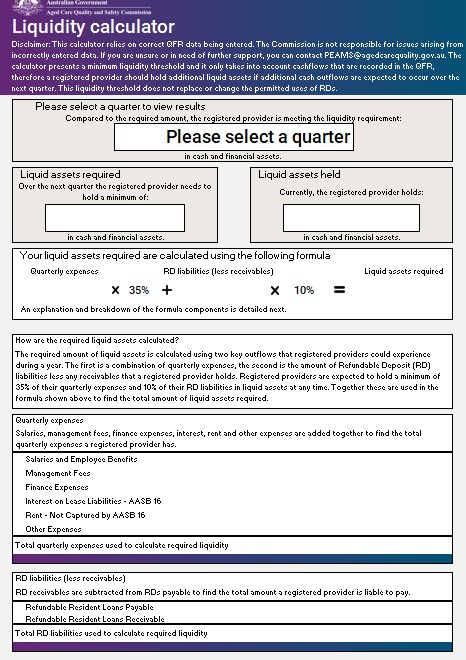This document is an example of the content covered in a standard audit initiation meeting.

This document is an example of the content covered in a standard senior management meeting.

This document is an example of the content covered in a standard governing body meeting.

This document is an example of the content covered in a standard entry meeting.

This document is an example of the content covered in a standard closing meeting.

Setting up a food focus group is simple and there are lots of ways to do it. This fact sheet has information and practical tips on what to think about when you’re planning and running a food focus group. If you’re setting up a group at a residential aged care service, you can adapt the suggestions in the toolkit to meet the needs and preferences of people in your care.

Food focus groups can use this checklist to improve the way they work. We’ve designed the questions to help your group think about how you work and how you could be more effective.

You can adapt this food focus group terms of reference template to suit your needs.

You can adapt this food focus group meeting minutes template to suit your needs.

You can adapt this food focus group meeting agenda template to suit your needs.

This document is an example of the content covered in a standard opening meeting.


This calculator informs registered providers of the minimum level of liquid assets they are required to hold calculated based on Quarterly Financial Report (QFR) financial statements.

This report gives a summary of the Commission’s public consultation on the draft Financial Prudential Standards. It covers the consultation process, themes from submissions, and outcomes from the consultation.

This presentation gives an overview of how the Liquidity Standard was developed. It includes:
- design principles and methodology of the Liquidity Standard formula
- feedback from public consultation
- liquidity Standard formula and rationale.

This fact sheet provides information for older people on the new Financial and Prudential Standards. It covers:
- who the Standards apply to
- what the Standards mean for them
- what they should expect from providers
- what they can do if their provider isn’t meeting the Standards.

You may want to request that the Commission reconsiders a reviewable decision.
This is a draft Request for reconsideration of a reviewable decision form. It is for viewing only and is subject to change. Please do not submit this form to us.
The final form will be available on our website from 1 November 2025.

To renew your registration as a registered provider, you must apply to the Commission.
This is a draft Application for renewal of registration form. It is for viewing only and is subject to change. Please do not submit this form to us.
The final form will be available on our website from 1 November 2025.

To deliver funded aged care services, you must apply to the Commission.
This is a draft Application for registration form. It is for viewing only and is subject to change. Please do not submit this form to us.
The final form will be available on our website from 1 November 2025.

To make changes to your registration, you must apply to the Commission.
This is a draft Application for variation form. It is for viewing only and is subject to change. Please do not submit this form to us.
The final form will be available on our website from 1 November 2025.










